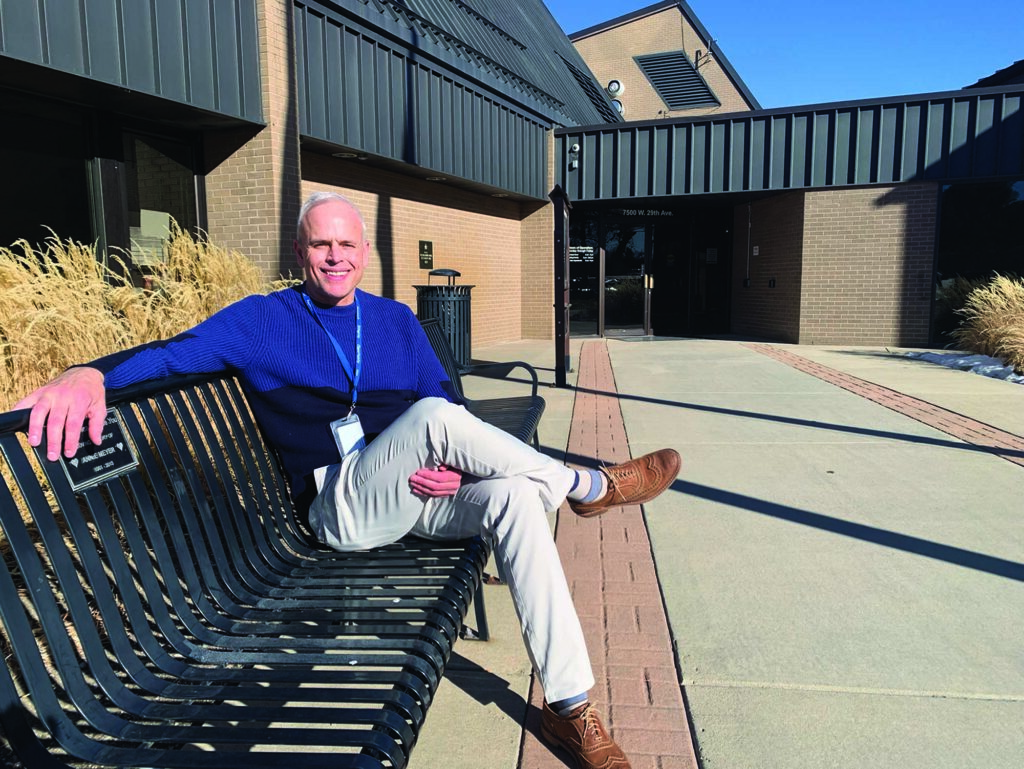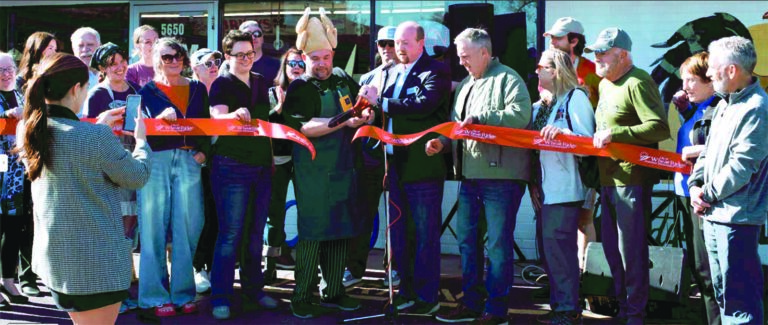When Wheat Ridge City Manager Patrick Goff started in politics he pictured a fast-paced career in D.C. or holding a Senate seat. He didn’t think he’d be bragging about his city’s plowed streets or making a community development a reality after 20 years of planning.
Although his long career in local politics wasn’t what he pictured, Goff enjoys that every day is different; and he’s in a city where he can get to the mountains in 15 minutes.
Decades-long tenures are somewhat unusual for city managers. Most jump from city to city looking for problems to solve and then move on to the next city.
“This is it for me,” said Goff, who became city manager in 2009. “I love it here. I want to see some of these major projects through to their completion. I have no desire to go to another city. I like to see the growth and the change in the community over a longer period of time.”
Through changes in social media and the world, city government positions have harder work ahead of them, Goff said. Despite the challenges, one of his favorite aspects of working in local government, versus federal or state government positions, is the “hand-on” approach he can take.
“You see your work get done,” Goff said. “It’s fun working with the community and getting to know the people and trying to help them.”
Growing up in Nebraska, Goff vacationed in Colorado as a kid and followed his siblings to Colorado when he began his career in the `90s.
During his time with the City, Goff assisted in bringing additional retail opportunities to the community, building out the parks and recreation programming and has always put value into maintaining the “small-town feeling” people love about Wheat Ridge, Goff said.
Goff works directly with the City Council by implementing their vision and policies for the City, along with presenting budgets and ensuring laws are being enforced.
A relatively young city with a long standing community, Wheat Ridge didn’t officially incorporate until 1969.
“When I first started two decades ago, the city was starting to stagnate a bit,” Goff said. “We weren’t keeping up with our neighbors in different ways. I think we’ve changed that. Wheat Ridge is really a place that people want to work, live, and play.”
New chapter for Wheat Ridge
Both 2023 and 2024 were planning years for the City. Projects included updating the City’s 15-year comprehensive plan, updating the park and recreation master plan, conducting a stormwater analysis and updating the economic development strategy.
Although he admits it’s a corny analogy, Goff likes to compare Wheat Ridge’s next chapter to the Industrial Era in U.S. history, with projects coming to fruition like the new Lutheran Hospital.
“We feel we’ve really reached a point where we are making this kind of very big jump into this next chapter for Wheat Ridge,” Goff said. “The city has jumped over this big hurdle into the future.”
The City plans to add more to the Clear Creek Crossing project, which now houses the new Lutheran Hospital, the new Lifetime Fitness facility and about 500 housing units. Phase two of the project, starting this year, will add a restaurant and entertainment district to Clear Creek Crossing, along with a couple hotels. This district will include a park where open consumption will be allowed, as patrons can walk between businesses. Phase two will close the chapter of a project Goff worked on for almost 20 years.
In November of 2023 voters approved the extension of a half-cent sales tax increase, which enables the city to issue bonds to get a loan for up to $75 million. This money will all go into public infrastructure, including road improvements, filling in sidewalk gaps, building new sidewalks and creating stormwater drainage.
Another priority for the next year or so is the redevelopment of the original Lutheran Hospital campus. The new owner is working on a contract to allow the building to be renovated to make a mixed-use housing development and to move some municipal facilities to the building, Goff said.
Goff and the City expect the Wadsworth construction project to wrap up this fall.
Maintaining the “small town feel” in Wheat Ridge
Some residents point to the increased traffic around Wheat Ridge as a sign that the city might become overpopulated. Goff acknowledges that traffic has increased but that it doesn’t necessarily mean that the population has grown. Some of the traffic is due to the overall increase of the Denver Metropolitan population. With more traffic, Goff and the City are looking for ways to make it safer for pedestrians and cyclists.
Goff protects what makes Wheat Ridge special and doesn’t neglect basic duties of a city, like a good police department and fixing the roads. Even City public works services are popular among residents.
“We get so many compliments about the way we plow streets,” Goff said. “You can tell when you cross the border from Lakewood, Arvada, or Denver. Wheat Ridge streets are much better.”
Although Wheat Ridge is a not so hidden gem anymore, Goff doesn’t forget the citizens who’ve lived there for decades.
“Wheat Ridge has a very strong community,” Goff said. “People love the fact that they’re from Wheat Ridge. A lot of people have stayed for good reasons.”






